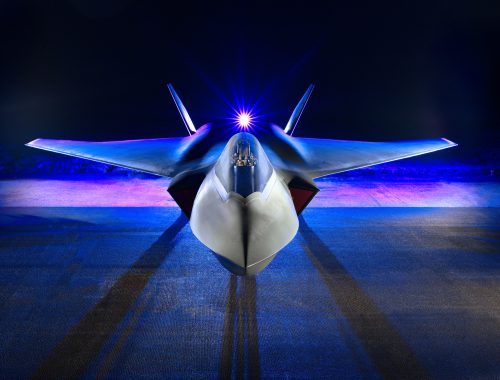Defence giant BAE Systems profits from continued global tensions

Amid heightened global tensions, annual sales, profits and dividends all rose at defence group, BAE Systems, although it saw a fall in its order levels, it revealed today.
The group reported revenues of £28.335bn in the year to December 31, 2024, compared with £25.284bn the previous year, a rise of 14%.
Pre-tax profits, on a statutory basis, were £2.332bn, up from £2.326bn the previous year.
The dividend has been increased from 30p per share to 33p per share.
Order intake for the year was £33.7bn, down from £37.7bn in 2023, but the group still boasts an order backlog of £77.8bn, an £8bn increase on the previous year.
Free cashflow dropped £88m to £2.505bn, due to higher capital expenditure and net finance costs.
During the year the group repurchased 43 million shares under its share buyback programmes, at a cost of £555m. Combined with dividends, the group returned £1.492bn to shareholders in the year ended December 31, 2024.
In March it raised £3.8bn of debt finance following the £4.4bn acquisition of Ball Aerospace, an American manufacturer of spacecraft, components and instruments for national defence, civil space and commercial space applications.
BAE Systems employs around 15,000 staff in the North West at its submarine yard in Barrow-in-Furness and its Warton and Samlesbury sites in Lancashire, where around 12,000 staff are based.
During the year the Lancashire sites welcomed orders for additional Typhoon aircraft from Italy and Spain while they also advanced plans to deliver next generation fighter jets under the Global Combat Air Programme (GCAP).
The company’s Air sector workforce in Lancashire provides vital frontline combat air capabilities to UK and international customers, making an important contribution to safeguarding national defence and security.
This includes providing around-the-clock support to the Royal Air Force Typhoon fleet, as well as leading the UK’s industrial contribution to GCAP to deliver a next generation combat aircraft.
During the reporting period the group also announced a $4.6bn order from the Australian Government to build Australia’s new fleet of nuclear-powered submarines as part of the AUKUS trilateral security pact between the United States, the United Kingdom and Australia.

Charles Woodburn
Charles Woodburn, Chief Executive, said: “The results we’re reporting today reflect the outstanding efforts of our employees and continue our track record of strong top line and earnings growth, free cash flow and orders.
“We’re supporting our customers around the world, while shaping our portfolio towards higher growth and strategically important markets.
“Across our business, we’re also investing in our people, facilities and technologies to drive efficiencies, boost capacity and increase our agility to deliver in a rapidly evolving environment.”
He added: “Based on the exceptional visibility of our record order backlog and sustainability of our value-compounding business model, we remain confident in the positive momentum of our business into the future.”
Guidance for the current financial year estimates a seven to nine per cent increase in revenues and an eight to 10% rise in earnings before interest and tax (EBIT).
Laith Khalaf. Head of investment at Manchester investment platform, AJ Bell, said: “The recent momentum in BAE Systems came to a halt on the company’s full-year results.
“BAE, like other European defence names, has been in demand with investors as the US recently signalled the continent would need to take more responsibility for its own security.
“With the shares trading at record highs going into these numbers, and having more than doubled since Russia’s invasion of Ukraine in 2022, a high bar was set. The fact BAE merely hit the top end of expectations rather than outright beating them and delivered fairly cautious guidance seems to have been enough to spark a round of mild profit taking.
“Longer term, BAE will be encouraged by the direction of travel, with European countries likely to look not only to boost their military expenditure, but also production capabilities on this side of the Atlantic to reduce the reliance on US imports.
“Given BAE’s size and its focus on long term contracts and spending programmes, it may take some time for evidence of this shift to show up in the company’s order book.”








